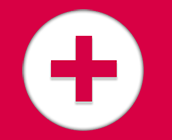Healthcare is an industry that is ever-growing and organizations around the country are always looking for RN candidates to join their medical team. If you’re interested in becoming a critical part of patient health, becoming an RN is the perfect pathway for you.
To become an RN, you’ll be required to complete different educational and licensing requirements. At Cambridge, we offer the nursing education you need to prepare for a promising career in healthcare.
Your RN Education: Which Path Will You Take?
To become an RN or registered nurse, there are various pathways you can take within your education. These pathways include:
- Undergraduate diploma in nursing: You can receive your diploma in nursing to become an RN to get a jumpstart on your career.
- Associate degree in nursing: An ADN program prepares you for entry-level employment through an Associate degree. This type of program typically takes between 2-3 years to complete from start to finish. Community colleges and institutions such as Cambridge offer Associate degrees.
- Bachelor’s degree in nursing: A Bachelor’s degree in nursing will take you approximately 4 years to complete. However, those who hold a Bachelor’s degree often receive higher salaries.
- Master’s degree in nursing: By receiving your Master’s degree, you can become an Advanced Practice Nurse, nurse educator or nurse administrator, depending on the career path you choose.
- Doctorate degrees: If you’re interested in becoming a nurse researcher, teacher or leader, a doctorate degree will help you pursue that path.
Which path will you take? It depends on where you wish to work and what field you wish to pursue. Most nurses work in hospitals, clinics and long-term care facilities. However, some nurses work in administrative offices and as teachers in community colleges or universities. First, decide what you want your career to look like and pick a pathway that fits.
Online or On-Campus: Which Is Best for You?
Depending on the career path you choose, you have options when attending college or university. At Cambridge, we offer our RN to BSN program online and our Associate of Science in Nursing on-campus. However, even if hands-on training is required, you may still be eligible for online classes to supplement your learning.
Online learning allows you to have a better school/life balance while not sacrificing your future career. Online learning also assists students who must commute with balancing their time. However, for those looking for intensive, hands-on training, on-campus education might be the best choice.
How Do You Get Licensed as an RN?
One of the most important steps in your nursing career is becoming licensed to obtain employment. To become a licensed RN, there are a few steps you must take.
- Complete an accredited RN program: You must complete an accredited RN program first, such as those offered through Cambridge, before you can proceed to licensing.
- Pass the NCLEX-RN licensing exam: After you graduate, you must take and pass the NCLEX-RN licensing examination. You must take and pass this exam to be licensed for work in your state.
These requirements are set forth to ensure patients are protected from harm caused by incompetence in the field.
What Does an RN Career Look Like?
An RN or registered nurse works directly with physicians and other medical staff to provide care for patients dealing with various health conditions. They’re involved with educating patients and families on medical treatment options and emotional support during difficult times.
Nurses have a wide range of responsibilities each day including:
- Administering medications and treatment
- Caring for patients
- Observing and tracking patient vitals
- Communicating with doctors
- Advising and educating patients on their health and current medical needs
- Educating patients on disease management and nutrition
And so much more, depending on your career path. Nurses work in clinics, hospitals, long-term care facilities, specialty facilities, emergency departments and many other places. According to Payscale, the average hourly rate for an RN is $29.30, with a minimum of $22.87 and a maximum of $40.86 depending on location and career path.
Are There Other Requirements for Entering an RN Program?
Individuals who are interested in becoming RNs will need a high school diploma with a grade point average of at least 2.0. Most nursing degree programs also require you to submit your SAT or ACT test scores for review. It’s important to take high school courses in science, anatomy and biology, if possible, to prepare for college and university-level courses.
Other Educational Pathways in the Medical Field
Even those who may not be interested in receiving their RN degree can take advantage of a career in the medical field. At Cambridge, we offer several nursing and medical programs including:
- Practical Nursing: Our practical nursing program prepares students for a career in the medical field as a Licensed Practical Nurse or LPN.
- Nursing Assistant: Our nursing assistant program prepares you for a career as a Certified Nursing Assistant or CNA.
- Medical Assistant: Want to enter the medical field fast, without becoming a nurse? Our 36-week medical assistant certification program can help you become an MA quickly.
Come Jumpstart Your Career With Cambridge!
At Cambridge, we help you get started on your medical career fast with our accredited nursing and medical programs. From CNA to RN, we’re here to help you take each step in your career path. To learn more, give us a call at 877-206-4279 today!
More on


